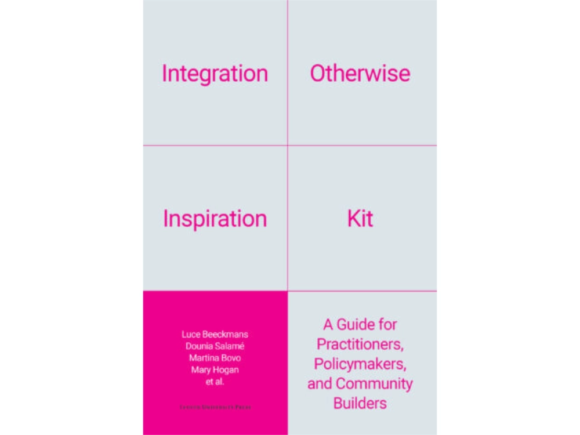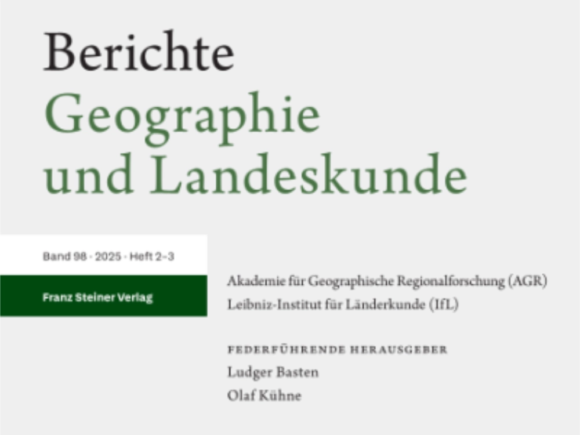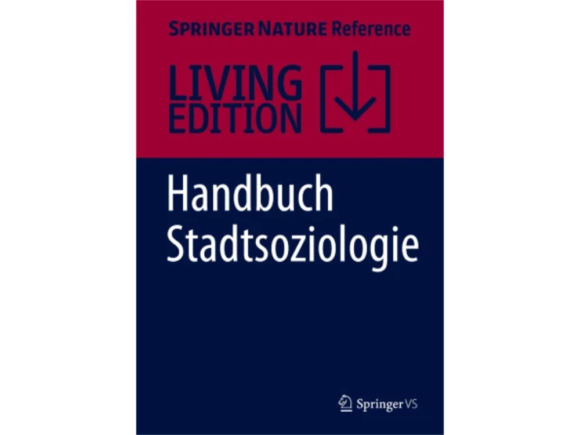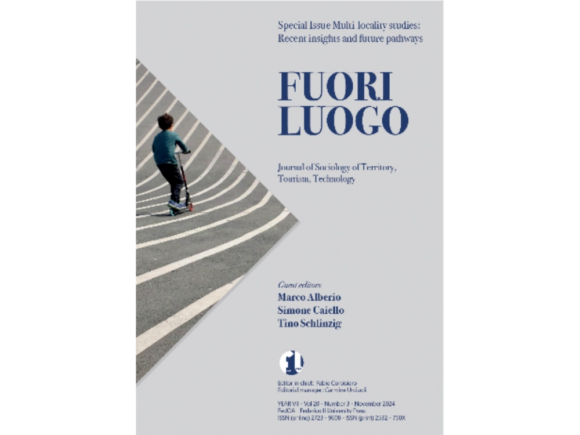Publications
Integration Otherwise Inspiration Kit. A Guide for Practioners, Policymakers and Community Builder
Within the Horizon 2020 Project ReRoot, Cornelia Tippel, ILS-Scientist within the research group „Urban Social Space“ has co-authored the „Integration Otherwise Inspiration Kit“. The publication is a practical guidebook that centers bottom-up approaches on integration and moves beyond polarizing debates of newcomers failing to integrate or blames society as insufficiently welcoming. The authors introduce the concept of „arrival infrastructuring“, the interactive process through which newcomers, together with others, actively shape and transform their arrival situations. Through stories from the ground with concise takeaways, alongside tools for reflection and action, this guide equips practitioners, policymakers and community builders with a deeper understanding of the diverse forms of arrival infrastructuring, as well as the successes and challenges of everyday integration processes. https://doi.org/10.11116/9789461666758. Further current selected papers can be found here.
Maintaining mobility of older people in urban areas in the face of climate change. Empirical findings on percieved heat stress and potential adaptive behavior
ILS-Researcher Kerstin Conrad has published a paper in the journal “Zeitschrift für Gerontologie und Geriatrie” in collaboration with Susanne Penger from the University of Siegen. The article covers the perception of extreme heat by elderly people. It covers the results of a survey of 211 persons aged 65 to 92 years in Stuttgart. A cluster of vulnerability factors was discovered, which led to a strong reduction in out-of-home activities during high perceived heat stress. This reinforces the necessity of targeted heat protection and prevention measures in local heat action schemes. https://doi.org/10.1007/s00391-025-02456-y. Further current selected papers can be found here.
Segregation an Grundschulen: Strukturen und Praktiken institutioneller Diskriminierung
ILS researcher Isabel Ramos, in collaboration with Heike Hanhörster from TU Berlin, has observed different forms of institutional discrimination, which deepen school segregation and counteract the function of elementary schools as places of encounter between different population groups. For their recent paper in the journal „Berichte. Geographie und Landeskunde“, they interviewed experts and parents and analyzed the interplay between institutional structures and practices and segregation at school. They identified three dimensions of institutional discrimination in access to elementary school: the strategic goals of a school in handling segregation, the admission process and the profile development and information policy of a school. These factors prove to be subtle, but decisive facets of institutional discrimination, that co-produce and perpetuate spatial and educational inequalities. https://doi.org/10.25162/bgl-2025-0013. Further current selected papers can be found here.
Zwischen Networked Publics und Orten der Begegnung. Ein qualitativ-explorativer Beitrag zur Konzeptualisierung von Online-Nachbarschaftsgruppen
Simon Liebig from the ILS research group “ Urban Social Space” has published an article together with Jan Üblacker from the EBZ Business School in the journal “Berichte. Geography and Regional Geography“. The article examines online neighbourhood groups on various platforms as local communication spaces. Based on 20 interviews, the article analyses the extent to which spatial concepts shape the accessibility of these groups and how interactions are shaped under the conditions of virtual co-presence. The results show that online neighbourhood groups are to be understood as localized networked publics that are characterised by persistent contacts and a geographical location reference. The users’ ideas of space form the content-related communication framework, function as a symbolic connection between the group members and determine accessibility. https://doi.org/10.25162/bgl-2025-0016. Further current specialist publications can be found here.
A decolonial and participatory research approach to envision equitable transformations towards sustainability in the Amazon
Together with colleagues, ILS-Researcher Barbara Schröter has published an article in the journal „Futures“. They present three radical visions of the Amazon they co-created with 20 Black, Indigenous, and other Women of Color (BIWOC) from the Putomayo department in Colombia. Storytelling serves as a tool to capture the BIWOCs differentiated experience of the world and their collective emancipation from different forms of oppression. This way, western dominated imaginaries are challenged and decolonial practices incorporated in to sustainability transformation research. https://doi.org/10.1016/j.futures.2025.103638. Further current selected papers can be found here.
Ankunftsquartiere und -infrastrukturen
Nils Hans, resarcher in the ILS research group „Urban Social Space“ has published a contribution to the „Handbuch Stadtsoziologie“ together with Miriam Neßler from TU Berlin. They explain the concepts of arrival quarters and arrival infrastructures. These concepts provide a new angle to gasp the interplay of migration and urban development. They are an expression of a changing view on neighborhoods shaped by immigration and answers on current migratory dynamics, such as increasing diversity and changed immigration patterns. The concepts offer important perspectives for understanding and describing arrival dynamics and conditions. https://doi.org/10.1007/978-3-658-42419-0_12-1. Further current selected papers can be found here.
Measuring the social impact of City-region food system initiatives (CRFSIs): A systematic review of indicators and metrics.
ILS-researchers Dr. Kathrin Specht and Chiara Iodice, in collaboration with other colleagues, published a paper in the journal „Sustainable Cities and Society“. In this paper, they challenge claims about the presumed immeasurability of social impacts of City-region food system initiatives (CRFSIs). Through the review of 234 research papers, they retrieved social indicators and metrics that underline the proven and measurable impact of CRFSIs on social sustainability. https://doi.org/10.1016/j.scs.2025.106462. Further current selected papers can be found here.
Die räumliche Steuerung von Photovoltaik-Freiflächenanlagen
Jonas Marschall aus der Forschungsgruppe „Raumbezogene Planung und Städtebau“ hat einen Aufsatz in der Zeitschrift für Umweltrecht veröffentlicht. Darin geht es um die räumliche Steuerung von Photovoltaik-Freiflächenanlagen. https://doi.org/10.5771/9783748954552-43 Weitere aktuelle Fachpublikationen finden Sie hier.
“I’d rather live in Munich, but my job in Stuttgart is more attractive”. The role of corporate ties in decisions to maintain multi-local living arrangements.
The ILS researchers Lisa Garde and Cornelia Tippel have published an article in the special issue Multilocalism in the Fuori Luogo Journal of Sociology of Territory, Tourism, Technology. In it, they examined the company loyalty of employees with multiple residences. The aim was to analyse the company loyalty of multinational employees working in Stuttgart (Germany) and to find out how such ties influence multinational coexistence. https://doi.org/10.6093/2723-9608/9444. Further current selected papers can be found here.
Analysing the determinants of perceived walkability, and its effects on walking
Anna-Lena van der Vlugt, Janina Welsch, Noriko Otsuka – scientists from the research group “Mobility and Space” – have published an article in the journal “Transportation Research Part A: Policy and Practice”. It presents the results of one of the first transportation studies analysing the determinants of perceived walkability and how it affects walking behaviour. The results show that perceived walkability is mainly affected by walking attitudes and that perceived walkability has an impact on walking frequency, walking distance and walking duration. It is therefore important for policy makers and urban planners to increase perceived walkability levels to stimulate walking, thereby improving physical activity and the liveability of neighbourhoods. For further studies, it is also suggested to analyse the relationship between perceived and objectively measured walkability in greater detail and to investigate the applied SPWS (Short Perceived Walkability Scale; compact scale for measuring perceived walkability), its determinants and the results of walking in other contexts as well. https://doi.org/10.1016/j.tra.2025.104498. Further current selected papers can be found here.













